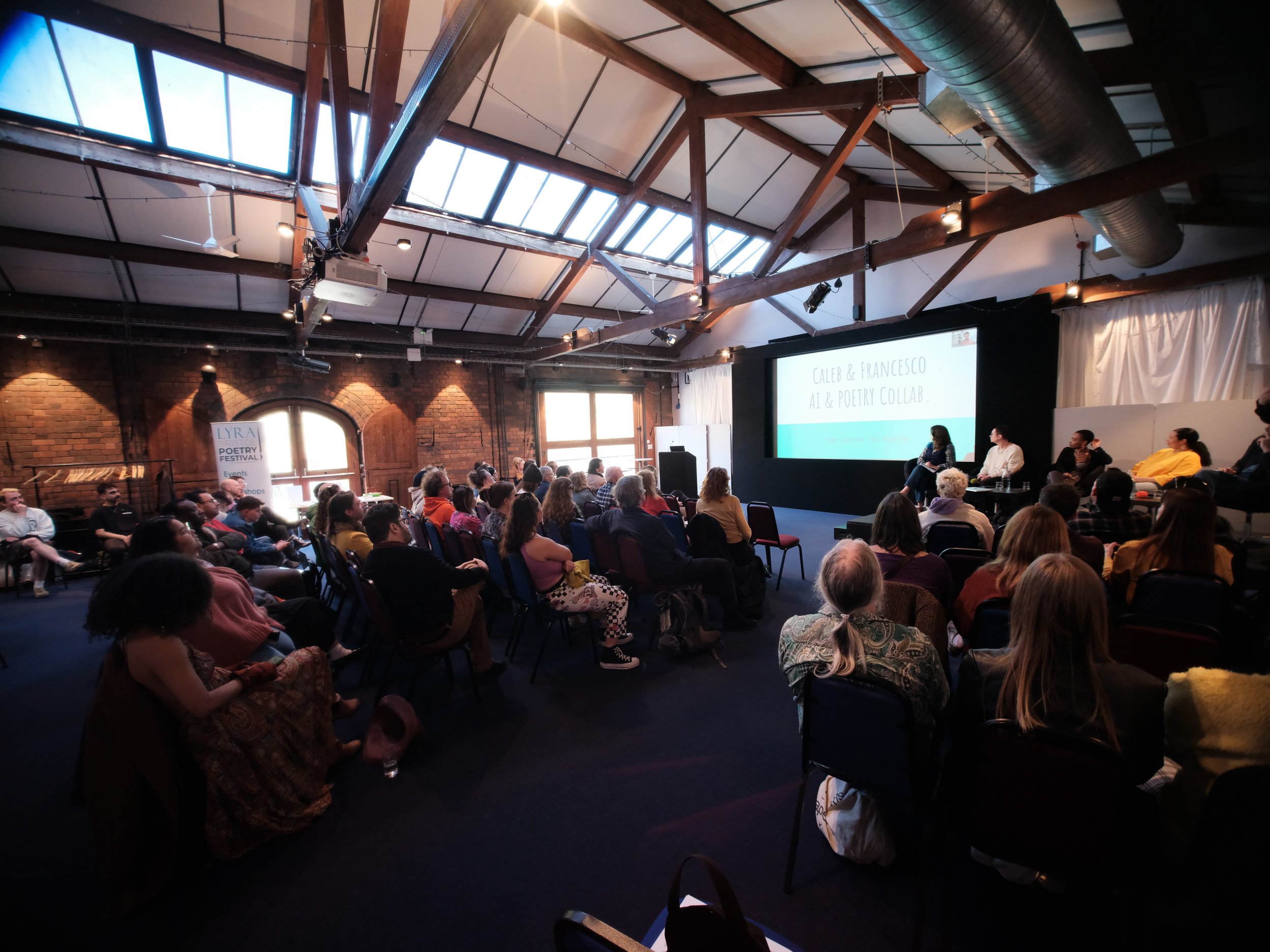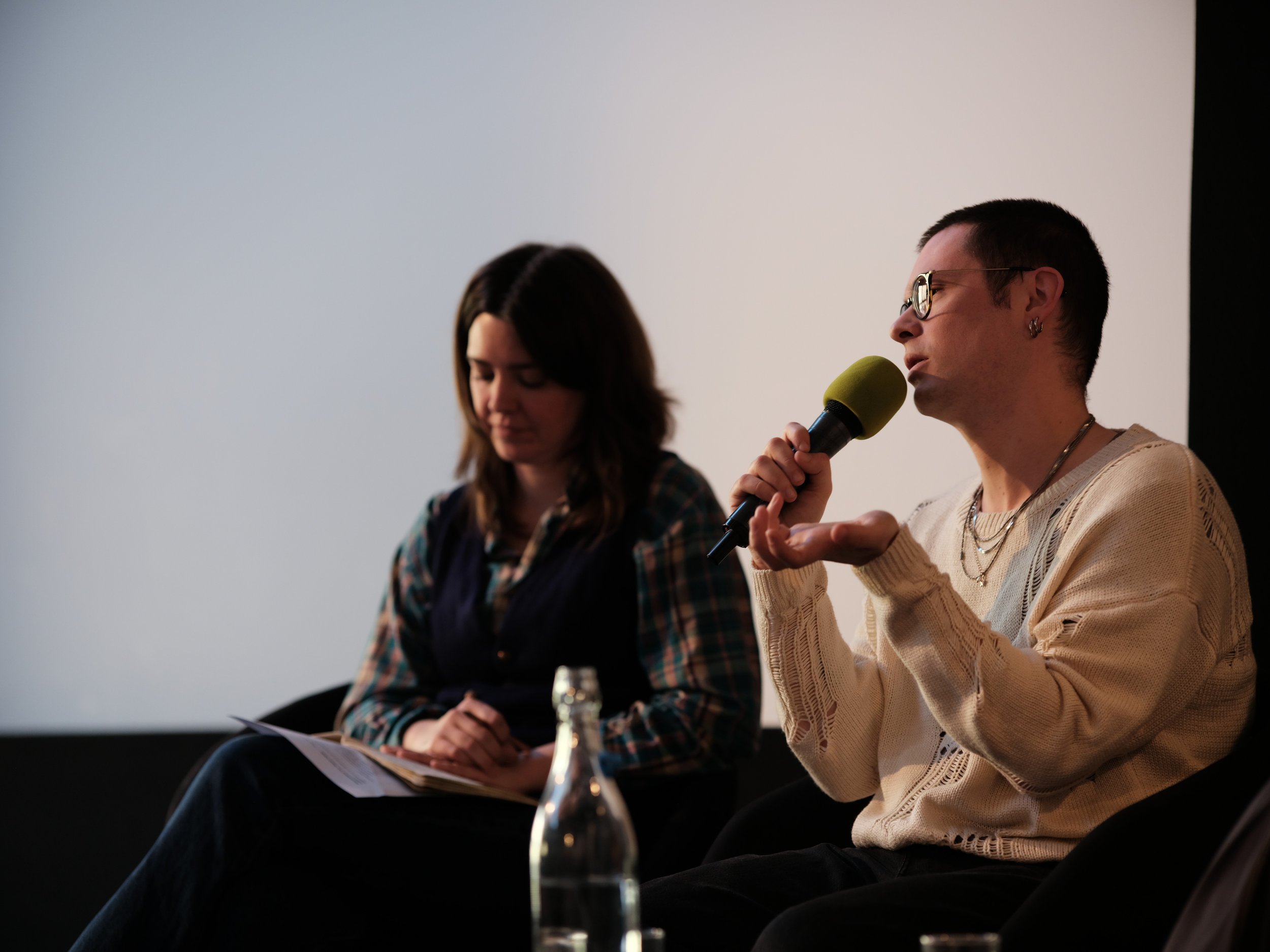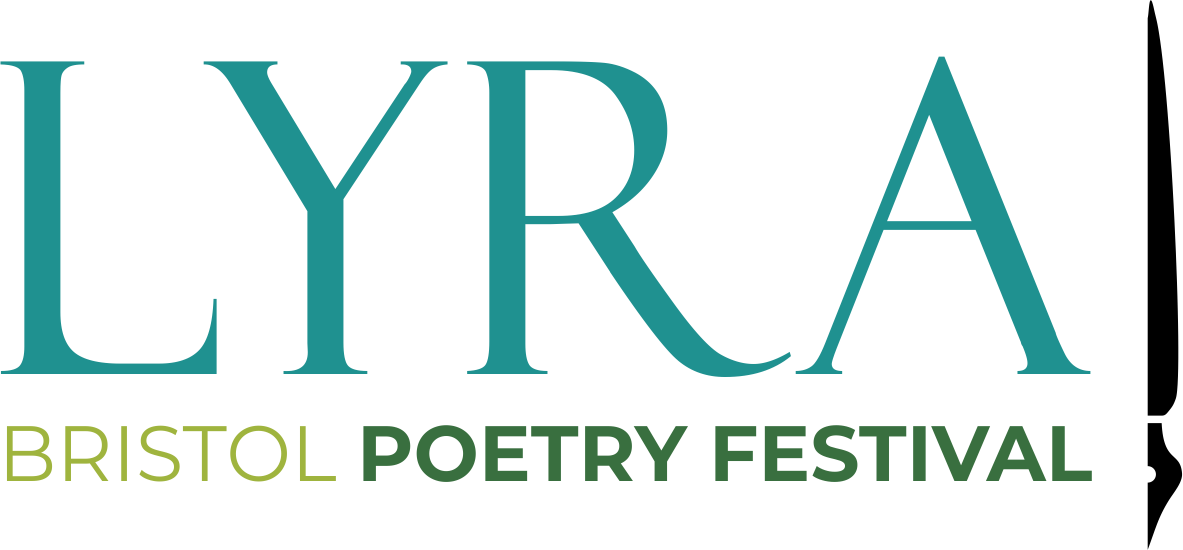Page Against the Machine
Exploring AI, Poetry, and what it means to be a human creative.
In 2024, Lyra launched a new project ‘Page Against the Machine: AI and Poetry’, thanks to support from Brigstow Institute.
Public poets are paired with technologists/academics to research, explore and create poetry in collaboration with AI, developing the practice of the individuals involved and having a wider impact on the way we think about the future of AI and creativity. The project was produced by Lyra’s Artistic Director Danny Carlo Pandolfi, and co-produced by University of Bristol’s Rebecca Kosick.
You can read Lead Researcher Caleb Parkin’s blog piece about the project here, published thanks to The Poetry School:
POETS & TECHNOLOGISTS:
The first interation of the project involved three poet / technologist pairs.
Caleb Parkin, former Bristol City Poet, widely published writer and practice-based PhD candidate at University of Exeter, collaborated with Francesco Bentivegna, artist and lecturer in Digital Technology at University of Bristol, focusing on voice, AI and the philosophy of technology.
Deanna Rodger, former UK poetry slam champion, experienced facilitator and writer of commissioned poems including BBC’s Sports Personality of the Year, collaborated with Michael Marcinkowski, poet with work published by Broken Sleep Books, and Director of Education for the Digital Futures Institute and Senior Lecturer in Digital Humanities at King’s College London.
shakara, a Jamaican-born artist fusing technology and creativity and weaving together poetry, spoken word and filmmaking with AI, collaborated with Vince Baidoo, a technologist who has worked with BBC, ITV and Channel4, started his first company at 15, and explores under-represented voices and narratives across media.
In our second iteration of the project, Page Against the Machine: AI & Poetry II, also funded by Brigstow Institute, we invited two more poet-technologist pairs to join the project:
Ralph Hoyte, Bristol/UK-based augmented soundartist, poet and writer, collaborated with Bristol-based computer artist Matthew Olden.
Raina Greifer, Bristol-based theatre maker and producer, collaborated with Francesco Bentivegna.
Caleb Parkin became the project’s lead researcher.
LIVE EVENTS:
A panel discussion presenting this work was hosted at Lyra Festival, April 2024 at Watershed, chaired by Page Against the Machine project co-producer Rebecca Kosick (Co-Director of Bristol Poetry Institute and Associate Professor of Comparative Poetry and Poetic at University of Bristol’s School of Modern Languages). shakara, as Lyra’s 2024 Festival Poet, also led a workshop exploring AI and Poetry entitled ‘Queering AI’.
In June 2025, Lyra then delivered the UK’s first ever AI and Poetry Symposium at Watershed. All four poet-technologist pairs presented their research to the audience, as well as a presentations by lead researcher Caleb Parkin and project co-producer Rebecca Kosick, and short lightning talks from UK poets Louisa Stewart, Kate Fox, Suchandrika Chakrabarti, Jon Stone and Hannah Silva.
ABOUT THE PROJECT:
The research process of Page Against the Machine encourages play, experimentation and curiosity, generating insights through practice-based collaborations.
Researchers and poet-technologist pairs responded to the question:
'How can poetic writing produced by, or with, AI accurately model human voice, narrative and place-based experience?'
At its core, the project asks what it is to be a human in the 21st century by considering our desire to be creative, express ourselves and to tell stories as an intrinsic part of our human consciousness.
We are interested in questions around ethical considerations of using AI to create art, how this impacts quality of poetry, if AI can impact public engagement with poetry, if AI can provide tools of accessibility for writing poetry, if poetry can ever be separated from the experiences of being human, and much more.
Special thanks to Watershed and the Pervasive Media Studio for their support in providing spaces for research, and the support of Arts Council England.
Photos by: Sam Cavender







